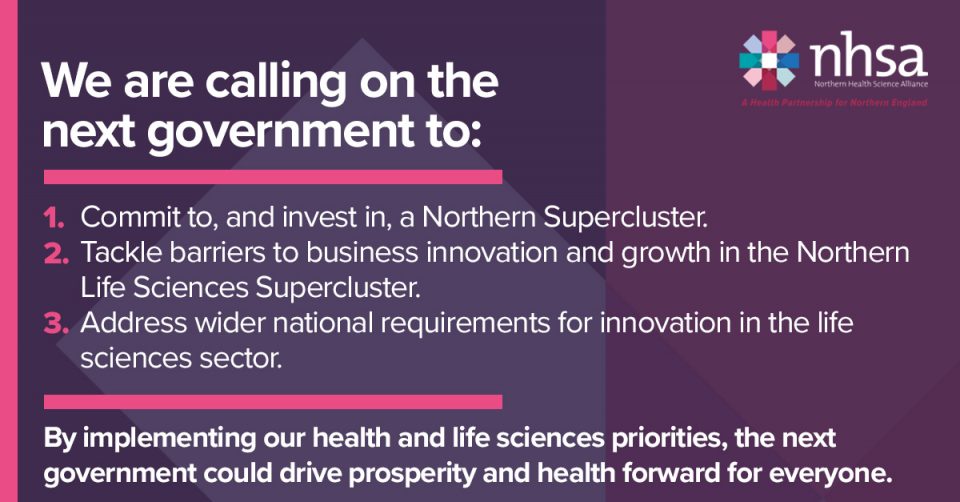
Health Equity North's Seven Missions
Health Equity North's Seven Missions
Health and life sciences are globally recognised as a UK strength. No other sector provides such a significant boost to the economy and directly impacts the population’s health in the same way.
Establishing a second UK life sciences supercluster, complementary to the one in the South East, could create an additional 64,600 jobs and triple the sector’s GVA from £5.17 billion to £16.52 billion over the next 20 years.
By adopting the NHSA’s three priorities, the next government could drive prosperity and health forward for everyone.
- Commit to, and invest in, a Northern Supercluster.
The next government must work with UKRI and NHS England along along with the NHSA and industry partners to support a cluster approach to economic growth in the North. The creation of a Northern Supercluster for health and life sciences will drive forward the health, wealth and resilience of the entire nation, building on existing nationally and internationally recognised strengths.
- Tackle barriers to business innovation and growth in the Northern Life Sciences Supercluster.
There are specific barriers to the growth of the life sciences industry in the North, which will need to be overcome for the Supercluster to reach full potential by working across government departments. Working together we can:
Develop decided pan-northern support for innovative SMEs to flourish and scale.
Invest in the people, skills and talent needed to grow the life sciences workforce through developing a Life Sciences Skills Action Plan that addresses both national and regional needs.
Support the NHS and universities to work with businesses within the life sciences sector to bring innovative products to market more quickly.
- Address wider national requirements for innovation in the life sciences sector.
We are calling on the next government to:
Commit to investing additional public sector Life Science R&D funding through the 2.4% of GDP target into the North; particularly where businesses are making greater R&D investments.
Create an innovative regulatory environment so that the UK can lead globally on high-trust, evidence-based development, evaluation and adoption, building on globally recognised assets.
Embed the lessons from COVID-19 and prepare for the regulatory challenges of Artificial Intelligence, “Internet of Things” enabled medtech including wearables, digital therapeutics and digital health applications.
